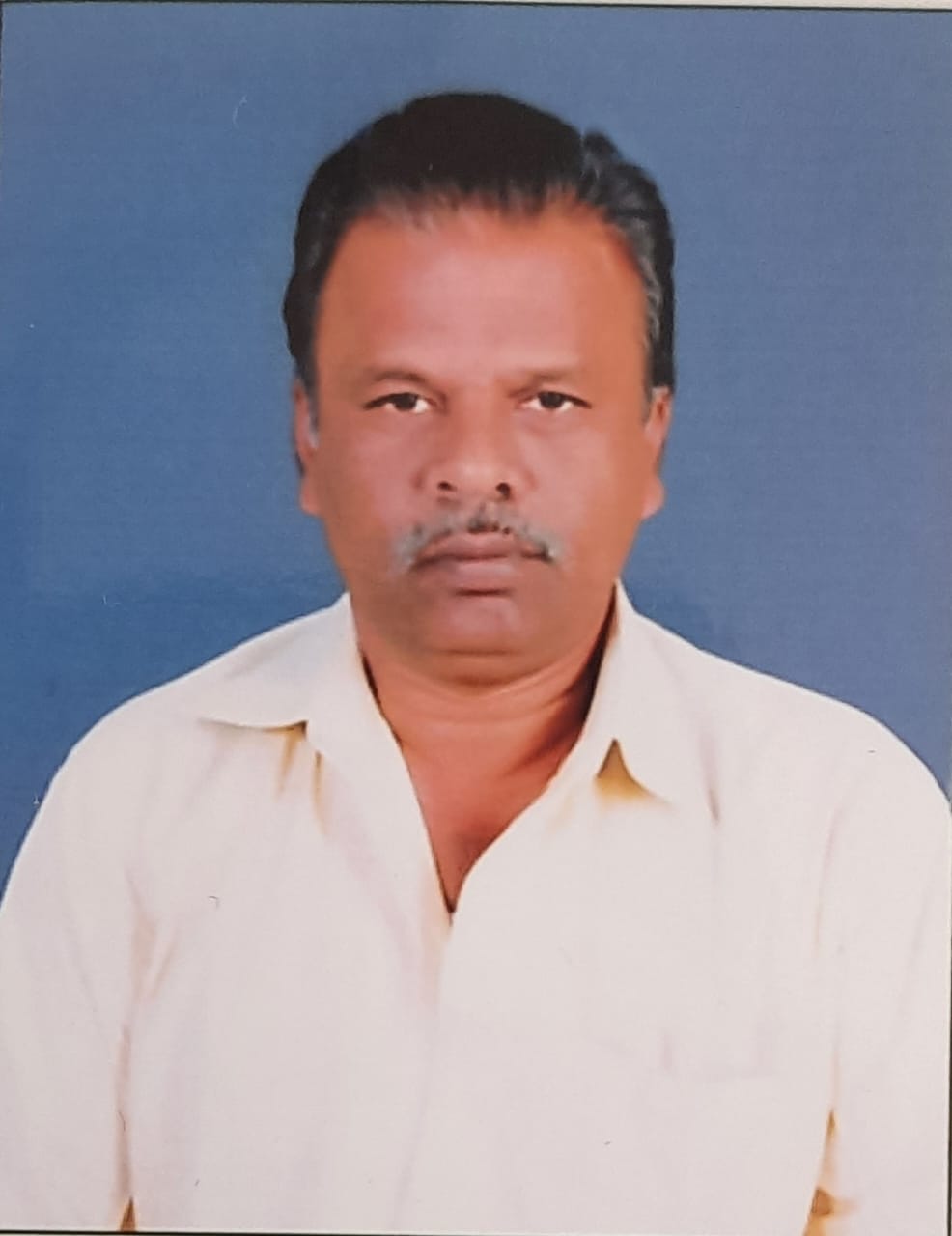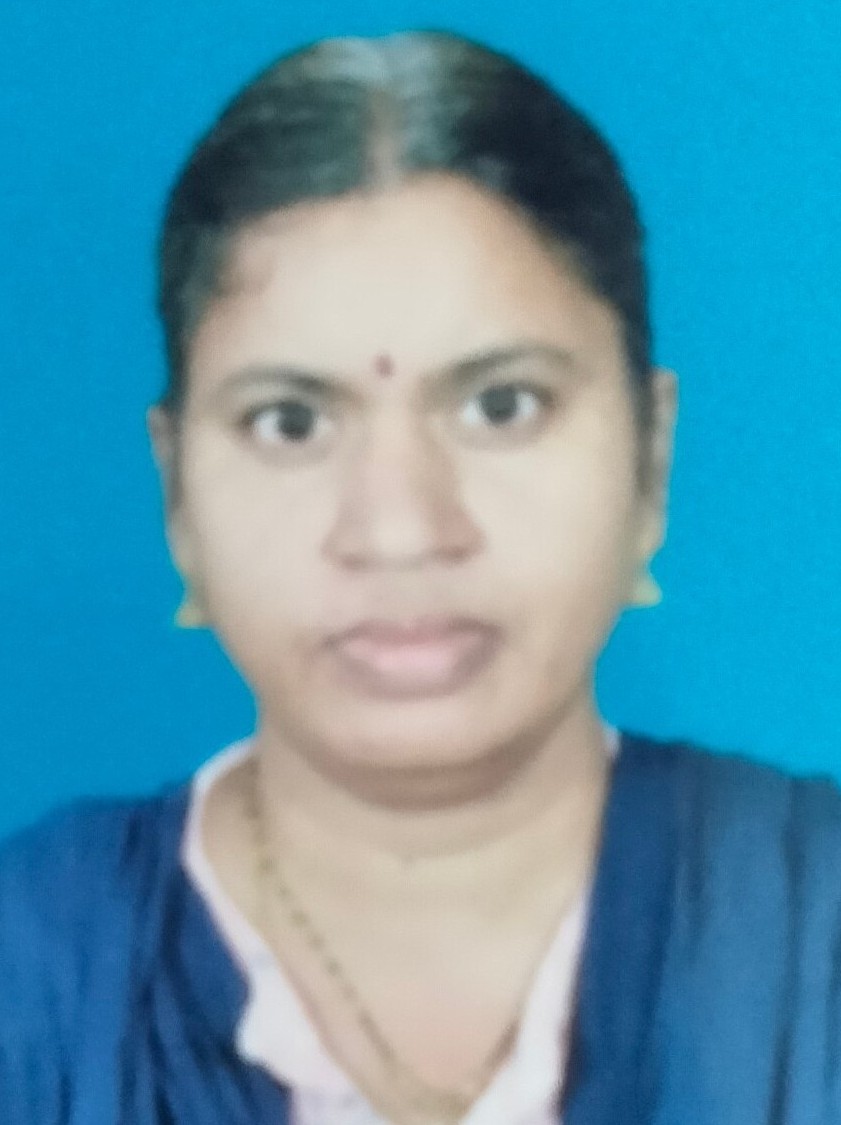About Department
The Department of Mathematics is one of the major department which was established in 2001.Since its inception it has created so many responsible and well settled persons.Initially in 2001,it was started with the conventional course MPC in Telugu medium with 60 intake.It comprises two lecturers.Gradually it developed as one of the biggest department with three branches and approximately with 420 students.
- 1.Mathematics,Physics,Chemistry – 2001 ( intake 60).
- 2.Mathematics,Physics,Computer Science – 2005( intake 50).
- 3.Mathematics,Data Science,Computer Science – 2021 (intake 30).
Objectives:-
1. To apply problem solving methods and logical skills to develop Under Graduate Internship chances and to encounter the changes in the competitive world.
2. To develop self – confidence and self sufficiency among the student community.
Goals:-
1. To encourage the students to participate in seminars/workshops.
2. To prepare the students for higher education and job oriented courses.
3. To offer Certificate courses in Mathematics
Teaching Staff
NAME Designation Qualification Photo Profile Mutyala Venkateswara Rao Lecturer MSc. M. Phil 
click here D.M.Ratna Kumari Contract lecturer in Mathematics M.Sc B. Ed 
click here
Programs Offered
| S.No | Year of Starting | Title of the Program | LEVEL (UG,PG) | Duration (in Years) | Sanctioned Annual Intake |
|---|---|---|---|---|---|
| 1 | 2001 | B.SC (MATHS, PHYSICS, CHEMISTRY) | UG | 3 | 60 |
| 2 | 2005 | B.SC (MATHS, PHYSICS, COMPUTER SCIENCE) | UG | 3 | 50 |
| 3 | 2019 | B.SC (MATHS, DATA SCIENCE, COMPUTER SCIENCE) | UG | 3 | 30 |
MATHEMATICS SYLLABUS
0 results CBCS 2020-21 Regulation
SEMESTER
NAME OF THE PAPER
Syllabus
I
DIFFERENTIAL EQUATIONS
click here
II
THREE DIMENSIONAL ANALYTICAL SOLID GEOMENTRY
click here
III
ABSTRACT ALGEBRA
click here
IV
R.A/L.A
click here
V
VECTOR CALCULUS & INTEGRAL TRANSFORMS
click here
CBCS 2015-16 Regulation
SEMESTER
NAME OF THE PAPER
Syllabus
II
SOLID GEOMETRY
click here
IV
REAL ANALYSIS
click here
V
RING THEORY AND VECTOR CALCULUS AND LINEAR ALGEBRA
click here
VI
ELECTIVE AND CLUSTERS
click here
Course Outcomes
COURSE I : DIFFERENTIAL EQUATIONS
Course Outcomes:After successful completion of this course, the student will be able to
CO 1. Solve linear differential equations
CO2. Convert non exact homogeneous equations to exact differential equations by using integrating factors.
CO3. Know the methods of finding solutions of differential equations of the first order but not of the first degree.
CO4. Solve higher-order linear differential equations, both homogeneous and non homogeneous, with constant coefficients.
CO5.Understand the concept and apply appropriate methods for solving differential equations.
COURSE II : ANALYTICAL SOLID GEOMETRY
Course Outcomes: After successful completion of this course, the student will be able to
CO 1. Get the knowledge of planes.
CO 2. Basic idea of lines, sphere and cones.
CO 3. Understand the properties of planes, lines, spheres and cones. CO4. Express the problems geometrically and then to get the solution.
COURSE III : ABSTRACT ALZEBRA
Course Outcomes: After successful completion of this course, the student will be able to
CO 1. Acquire the basic knowledge and structure of groups, subgroups and cyclic groups.
CO 2. Get the significance of the notation of a normal subgroups.
CO 3. Get the behaviour of permutations and operations on them.
CO 4. Study the homomorphisms and isomorphisms with applications.
CO5. Understand the ring theory concepts with the help of knowledge in group theory and to prove the theorems.
CO 6. Understand the applications of ring theory in various fields.
COURSE IV : REAL ANALYSIS (PAPER-4)
Course Outcomes: After successful completion of this course, the student will be able to
CO 1. Get clear idea about the real numbers and real valued functions.
CO 2. Obtain the skills of analyzing the concepts and applying appropriate methods for testing convergence of a sequence/series.
CO3. Test the continuity and differentiability of a function.
CO 4. know the geometrical interpretation of mean value theorems.
CO 5. Get the knowledge about Riemann integration of a function.
COURSE IV: LINEAR ALZEBRA (PAPER 5)
COURSE V : RING THEORY & VECTOR CALCULUS: (PAPER 5)
Course Outcomes:After successful completion of this course, the student will be able to;
CO 1. Understand the concepts of rings and their properties.
CO 2. Understand the concepts of homomorphism, kernel, maximal ideals and their properties.
CO3. Will get the knowledge of differentiable operators gradient,divergence curl operators and their formulas.
CO4. Learn the concept of line integral, surface integral, volume integrals with examples.
CO5: Analyse the theorems of Gauss Stokes Greens theorem in plane and applications.
COURSE VI : LINEAR ALGEBRA: (PAPER 6)
Course Outcomes:After successful completion of this course, the student will be able to
CO 1. Understand the concepts of vector spaces, subspaces, basises, dimension and their properties.
CO 2. Understand the concepts of linear transformations and their properties.
CO3. Apply Cayley- Hamilton theorem to problems for finding the inverse of a matrix and higher powers of matrices without using routine methods
CO4 . learn the properties of inner product spaces and determine orthogonality in inner product spaces.
COURSE VII: NUMERICAL ANALYSIS(PAPER VII)
COURSE OUTCOMES: After successful completion of this course, the student will be able to;
CO1: Ability to find solutions for algebraic equations, and ordinary differential equations.
CO2: calculating the errors and approximations in numerical methods.
CO3: Analysis of finite differences for equal intervals and unequal intervals
CO4: Solve an algebraic or transcendental equation using an appropriate numerical methods.
CO5: Analysis of finite differences for unequal intervals.
Program Outcomes
B.Sc MPC
PO 1: This course forms the basis of science for coherent understanding of the academic field to pursue multi and inter-disciplinary science careers in future. (MPC)
PO 2: Able to plan and execute experiments or investigations, analyse and interpret data information collected using appropriate methods (Practical Paper)
PO 3: It helps to develop scientific temper and thus can prove to be more beneficial for the society as the scientific developments can make a nation or society to grow at a rapid pace through research. (Renewable Energy Project)
PO 4: Students can Apply discrete probability distributions. (Survey)
PO 5: Discuss debate and communicate in a clear and logical way, with graduates other fields. (Seminar)
PO 6: Demonstrate skills and competencies to conduct scientific experiments & data analysis.
PO 7: Bachelor of Science offers theoretical as well as practical knowledge about different subject areas.
PO 8: Knowledge acquired through field trips/industrial tours is useful for their job work.
B.Sc MPCS
PO 1: Bachelor of Science offers theoretical as well as practical knowledge about different subject areas.
PO 2: This course forms the basis of science for coherent understanding of the academic field to pursue multi and inter-disciplinary science careers in future. These subject areas include Physics, Chemistry, Mathematics, Computer Science, Acqua culture and Zoology.
PO 3: Able to plan and execute experiments or investigations, analyze and interpret data information collected using appropriate methods.
PO 4: It helps to develop scientific temper and thus can prove to be more beneficial for the society as the scientific developments can make a nation or society to grow at a rapid pace through research.
PO 5: Be able to program fluently in one or two programming languages.
PO 6: Understand the major programming paradigms and be able to learn a new programming language in a fairly short time and understand standard techniques for solving a problem on a computer, including programming techniques and techniques for the representation of information.
PO 7: Understand the basic theory of computer architectures, the nature of operating systems and compilers, software development process, and how information technology affects society, business and the individual.
PO 8: Be able to effectively communicate with persons who are not technically versed in the subject.
Time Table
...
Student Profile
Department Meetings
ACADEMIC YEAR
DEPARTMENT MINUTES
2015-16
click here
2015-16
click here
2016-17
click here
2018-19
click here
2018-19
click here
2018-19
click here
2019-20
click here
2020-21
click here
2021-22
click here
Department Activities
DATE
NAME OF THE ACTIVITY
REPORT
2023-10-11
Guest Lecture -sena ias
click here
2023-03-14
PI Day
click here
2022-06-05
WORLD ENVIRONMENT DAY
click here
2022-03-14
PIE DAY
click here
2021-12-31
Exchange of Staff and Student (Under MoU with KBN College,Vijayawada)
click here
2021-12-22
MATHS DAY CELEBRATIONS
click here
2021-12-18
TRADE FAIR
click here
2021-12-14
ENERGY CONSERVATION DAY
click here
2021-11-25
GUEST LECTURE
click here
2020-02-28
NATIONAL SCIENCE DAY
click here
2020-02-20
FIELD TRIP
click here
2020-02-07
QUIZ COMPETITIONS
click here
2020-01-10
RANGOLI COMPETITIONS
click here
2019-12-22
MATHS DAY CELEBRATIONS
click here
2019-12-20
ESSAY WRITING COMPETITIONS
click here
2019-08-22
GUEST LECTURER
click here
2019-07-02
Guest lecture by Badari
click here
2019-02-28
QUIZ PARTICIPANTS LIST AND CELEBRATIONS
click here
2019-02-28
SCIENCE DAY CELEBRATIONS
click here
2019-02-28
Guest lecture by Subhakar
click here
2019-01-08
ICT TEACHING
click here
2019-01-08
VIJAYAWADA BOOK FEST
click here
2018-12-22
MATHS DAY
click here
2018-12-22
EXTENSION ACTIVITY
click here
2018-12-06
PROBLEM SOLVING SESSION
click here
2018-11-17
STUDENT SEMINAR
click here
2018-10-06
MATHS QUIZ
click here
2018-10-04
STUDENT SEMINAR
click here
2018-09-19
Guest Lecture
click here
2017-12-22
MATHS DAY
click here
Results Analysis
Result Analysis
* required field
Student Progression
Publications
No research publications found for the mathematics department.
Awards/Achievements
0 results
MoUs/Collaborations
// output data of each row
List of MoUs
Name of the Institution/ Industry with which MOU is signed
Date of signing MOU
COLLEGE LEVEL/DEPARTMENT LEVEL
Activities under MOU
MoU
KBN COLLEGE, VIJAYAWADA
2021-12-31
MATHEMATICS
EXCHANGE OF STAFF AND STUDENTS
click here
GDC, CHINTHALAPUDI
2022-08-08
MATHEMATICS
EXCHANGE OF STAFF AND STUDENTS
click here
Nobel College, Machilipatnam
2018-09-19
MATHEMATICS
Guest Lecture, Faculty exchange, Student live project(ongoing)
click here
The Hindu College, Machilipatnam
2018-09-19
MATHEMATICS
Guest Lecture, Faculty exchange, Student live project(ongoing)
click here
Best Practices
Best Practices
Name of the Best Practise
Best Practise
Induction Method On University Exams to Freshers
click here
Tutorial class
click here
Relavent Links
...
Gallary















 ...
...
Contact Us
